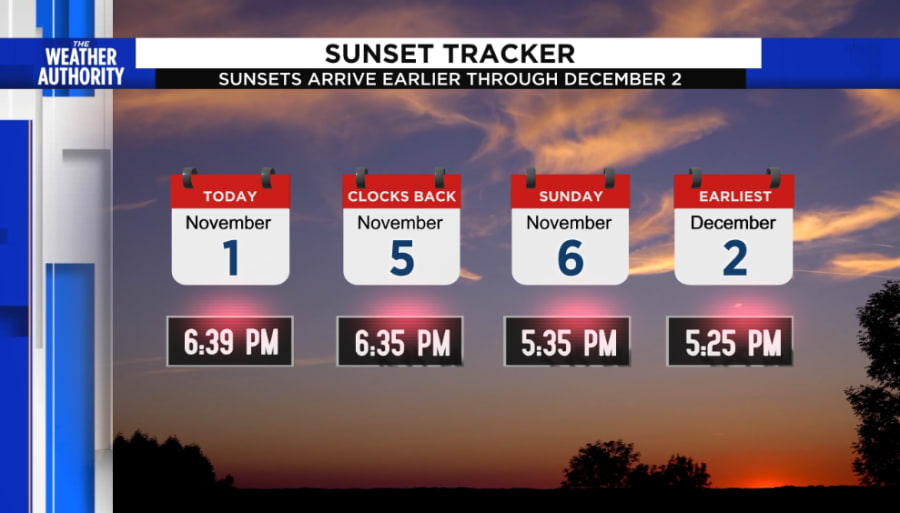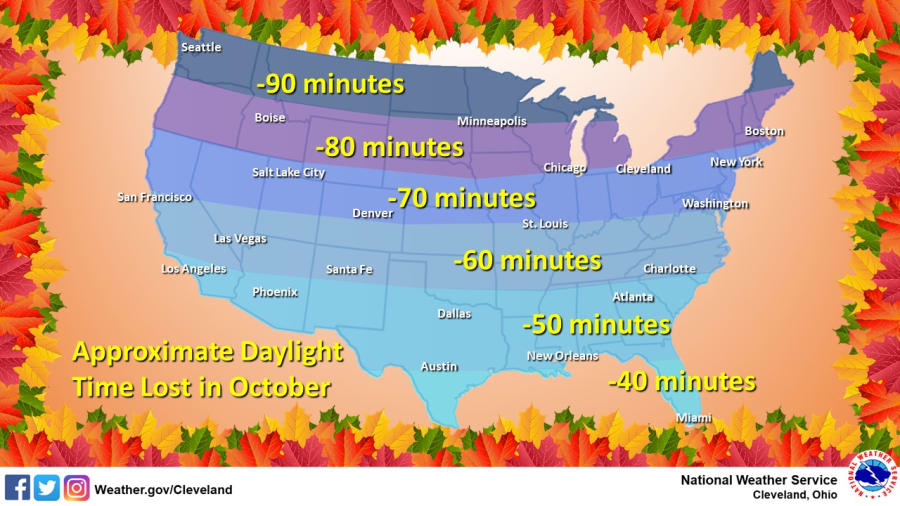We were in the dark for the longest time this year on Saturday morning November 5. This day marked the latest sunrise of the year in Jacksonville but tomorrow it will shine earlier with the time shift back Sunday morning.
The tilted planet gets less and less sunshine on its trip around the Sun. This is the hallmark of autumn resulting in the sun setting earlier and it taking longer to break the horizon in the morning.
Recommended Videos
Let’s take a look at how Sunday’s 2 a.m. time switch to standard time will impact the sunrise and sunset.
Ever since June 22, the days have been getting shorter. The mornings are dark for many heading to school and work since the sun doesn’t break the horizon until 7:45 a.m. this week.
But the time switch back an hour Sunday, November 6, at 2 AM will give you some earlier morning sun when it rises at 6:45 a.m.
However, the sun continues to rise later until January 14 bringing darkness earlier when daylight contracts as sunsets arrive earlier through the first week of December.

If you feel the change is all too sudden, be glad you don’t live along the northern tier border states where the days get shorter quicker, losing an hour and a half of daylight during October.
Daylight varies in Jacksonville from the longest day -- 14 hours, 6 minutes -- on June 22 to 10 hours, 11 minutes six months later on the winter solstice December 21, 2022.






